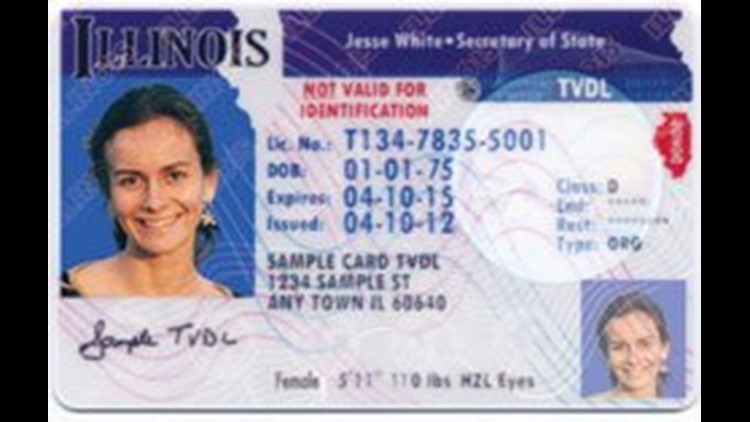Amid confusion over what ID is valid for travel, the Department of Homeland Security says no changes will begin at U.S. airports until January 22, 2018.
The REAL ID Act requires proof of legal residence and date of birth to get a secure driver’s license. Because Illinois does not require a birth certificate to get a driver’s license, that lacking requirement conflicts with the federal REAL ID Act of 2005.
Some states, including Illinois, asked for extensions as they worked to comply with the requirements. A spokesman for the Illinois Secretary of State’s Office previously said it would cost the state $50 to $60 million to implement the system; but that would require legislative approval for a state that has been operating without a budget since July 2015.
Now, state and federal officials are clarifying that your driver’s license still works as valid ID for travel – for now.
“Illinois driver’s licenses and ID cards will continue to be accepted as primary forms of identification to board commercial airplanes for domestic travel,” said a statement issued January 8, 2016 from Illinois Secretary of State Jesse White.
Illinois’ last application for another extension, to comply with the REAL ID act, was denied. Iowa is already compliant with the REAL ID requirements.
“Right now, no individual needs to adjust travel plans, or rush out to get a new driver’s license or a passport for domestic air travel. Until January 22, 2018, residents of all states will still be able to use a state-issued driver’s license or identification card for domestic air travel. Passengers can also continue to use any of the various other forms of identification accepted by TSA (such as a Passport or Passport Card, Global Entry card, U.S. military ID, airline or airport-issued ID, federally recognized tribal-issued photo ID),” said a January 8, 2016 statement from the Department of Homeland Security.
The statement offers even more clarity about upcoming REAL ID requirements:
“Starting January 22, 2018, passengers with a driver’s license issued by a state that is still not compliant with the REAL ID Act (and has not been granted an extension) will need to show an alternative form of acceptable identification for domestic air travel to board their flight,” the statement said.
“Starting October 1, 2020, every air traveler will need a REAL ID-compliant license, or another acceptable form of identification, for domestic air travel,” the statement said.



